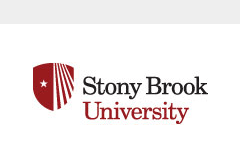Document Type
Article
Publication Date
Winter 12-5-2019
Keywords
cardiac surgery, coronary artery bypass graft, clinical outcomes, hospital merger health policy, health care provider[, mitral valve, risk assessment, and acquisition, health facility
Abstract
The purpose of this study is to explore strategies to improve mitral valve repair (MVr) outcomes. This research explores postoperative outcomes of patients undergoing MVr surgery by single center surgeons versus patients of multicenter surgeons. Specific outcomes of interest include 30-day operative mortality, major operative complications (e.g., deep sternal wound infection, permanent stroke, renal dysfunction requiring dialysis, reoperation, and prolonged ventilation), length of stay, and 30-day readmissions.
In brief, the serisk-adjusted outcome rates for surgeons that perform mitral valve repair procedures will be compared for surgeons that operate at a single center [i.e. SC surgeons] versus multiple centers [i.e. MC surgeons]. The overarching study hypothesis is:
H(0) There will be no difference in the risk-adjusted outcome rates between surgeons that operate at a single center [i.e. SC surgeons] versus multiple centers [i.e. MC surgeons].
Based on prior research, however, it is anticipated that single center surgeons may have superior outcomes compared to multi-center surgeons.
Recommended Citation
Shroyer ALW, Gioia WE, Bishawi M et al. Single- Versus Multicenter Surgeons' Risk-Adjusted Coronary Artery Bypass Graft Procedural Outcomes. Ann Thorac Surg. 2018;105(5):1308-1314. doi: 10.1016/j.athoracsur.2018.01.023.
CORIHS IRB Protocol Approved
Tannous Shroyer Bilfinger NHSR STS MVR ( IRB2019-00620 ).pdf (451 kB)
Included in
Cardiology Commons, Health Policy Commons, Infrastructure Commons, Public Policy Commons, Surgery Commons

Comments
Study manuscripts are being submitted to the Annals of Thoracic Surgery.